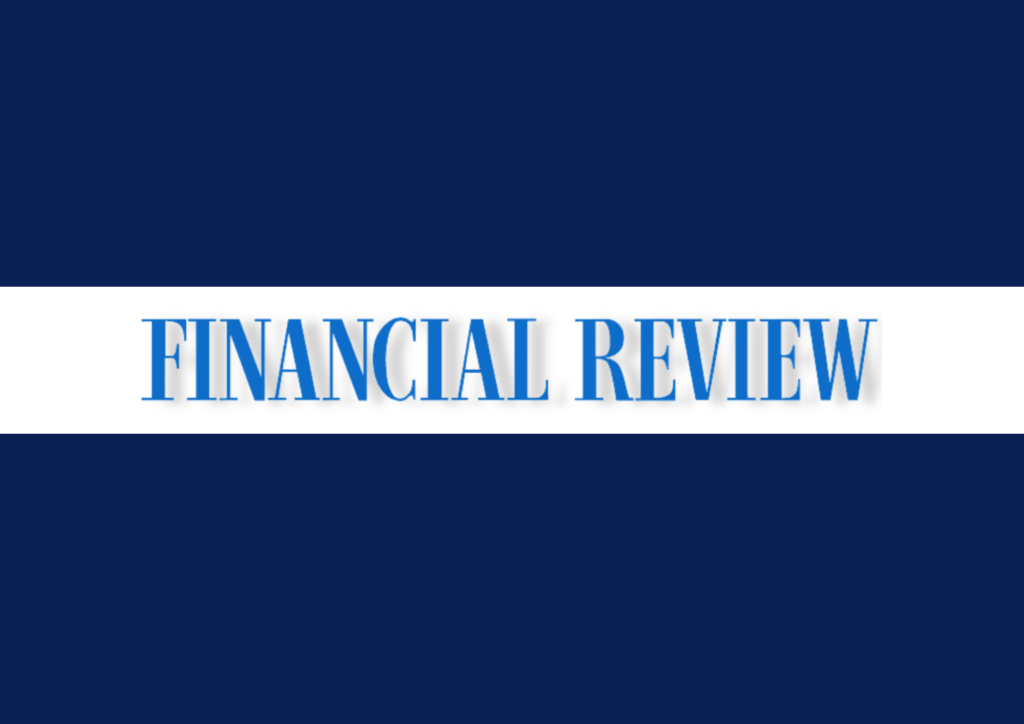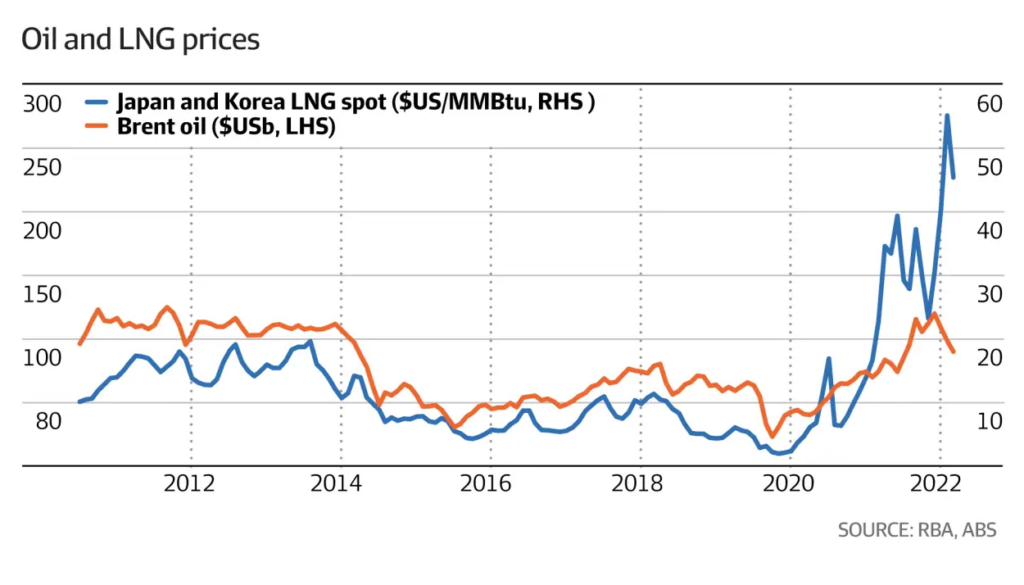
Article by Ronald Mizen courtesy of the Australian Financial Review.

LNG exports increased almost 20 per cent to $11 billion amid a global energy crisis caused by Russia’s invasion of Ukraine, and gas exporters are expected to show record revenues this financial year.
A boost in export volumes offset weakness in the spot price of iron ore, which edged almost 9 per cent higher to $14.5 billion after three months of falls. While down from its peak, iron ore remains above long-run averages.
The nation’s third major export, coal, remained steady at about $12.3 billion due to disruptions out of the port of Newcastle.
Exports of rural goods rose 2.8 per cent, led by a $133 million rise in cereals.
“Over the past year rural exports are up a large 46.9 per cent helped by strong demand and prices of grains due to the war in Ukraine,” said Commonwealth Bank economist Belinda Allen.
Nice problem to have
“It’s a nice problem to have,” said CommSec chief economist Craig James. “Demand for our commodities is soaring, and our trade surplus remains significant. Dollars are being injected into the economy at a time when the Reserve Bank is trying to slow growth in activity, income and spending.
“At the same time, imports are also growing – highlighting an improvement in supply as well as higher prices. Overall, the trade situation is good news.”
Mr James noted that over a full year, local miners were expected to generate $200 billion in income from iron ore and natural gas alone, which is also good news for Treasurer Jim Chalmers, helping bolster federal coffers.
Australia’s big miners including BHP, Rio Tinto, Fortescue and companies controlled by Gina Rinehart paid more than $28.5 billion in tax in 2020-21, accounting for nearly a third of corporate tax, according to new ATO data.
Mining profits have surpassed all other non-financial corporations this year.
A drag on economic growth
Australia’s luck may wain, however, with China’s peak steelmaking body warning that demand for steel, a key driver of Australian iron ore prices, will remain weak as the industry grapples with “severe” conditions including Beijing’s COVID-zero policy and a slowdown in China’s housing market.
The price of Australia’s most prominent export commodity has slumped from a high of around $US160 a tonne in April to around $US80 a tonne.
The latest data rounds out the September quarter. According to National Australia Bank economists, the quarterly trade surplus is expected to come in at around $30 billion, well down on the $43.7 billion result in June.
“A preliminary mapping using trade prices suggests in volume terms net exports will detract .075 per cent from quarter three GDP,” NAB economist Taylor Nugent said. “Trade price data released last week suggested import prices rose 3.0 per cent q/q and export prices fell 3.6 per cent.”













